- Home
- Paul Christopher
The Templar Cross Page 6
The Templar Cross Read online
Page 6
“It’s got the Afrika Korps Palmenstempel,” said Holliday. “I doubt that the E.T. means extraterrestrial.”
“Walter Rauff again,” said Japrisot. “E.T. would be the Einsatzkommando Tunis, his unit.”
Holliday stared at the buttery slab of bullion, horribly aware of its origins. He put it back into the fish box, a chill running down his spine. Suddenly he felt as though he was going to be sick. Rafi stepped forward and took a close-up shot of the gold with his cell phone. Japrisot did not look pleased.
“I am about to call in my people from Marseille. By helicopter it will take them no more than thirty-five minutes from the time I call. I have done the service required by my relationship with my friend M. Ducos. That obligation has been attended to. Unless you wish to become involved with a great deal of French police bureaucracy I suggest that you leave here immediately. Comprenez?”
“Of course,” Holliday said and nodded. “One question.”
“One only.”
“Was Valador’s boat capable of making the North African coast?”
“Certainement. Tunis is five hundred miles from Marseille. A boat such as his could make the trip in thirty hours or perhaps less in good weather. The ferry gets you there overnight.”
“Thank you,” said Holliday. “You’ve helped us a lot. Please extend my thanks to Monsieur Ducos as well.”
“C’est rien,” said Japrisot. It’s nothing. “Now leave.”
They did so, walking quickly down the hill from the corner.
“Now I see what must have happened,” said Rafi. “Peggy and her expedition must have tripped over a cache of old Nazi gold lost in the desert somewhere. That’s why no one’s asking for ransom.”
“The Vichy French and the Germans controlled most of North Africa for the first three years of the war,” said Holliday, “and the Italians even before that.”
“What’s your point?” Rafi asked.
“If Rauff collected all that gold from North African Jews, you would have thought he’d have sent it back to Germany. So what was it doing out in the desert?”
They reached the bottom of the hill and flagged a silver Mercedes taxi cruising the harbor front, trolling for business from the restaurants overlooking the water. Twenty minutes later they’d booked themselves into a garish pink suite overlooking the crescent of beach in front of the Royal Casino Hotel in Mandelieu-la-Napoule.
“I guess the next stop is Tunisia,” said Holliday, crouching in front of the minibar and getting out the fixings for a stiff drink. Both the sight of Felix Valador’s grisly corpse in the cupboard and the nasty feel of the Holocaust gold in his hands had shaken him badly.
“Not necessarily,” said Rafi, sitting on the edge of one of the beds and flicking through the channels on the big flat-screen TV. He dug into his pocket and pulled out his cell phone. He tossed it to Holliday. “Check out the shots I took.”
Holliday put the phone in picture mode and scrolled through the photos. There were two or three general views of the antique store interior, one of Valador, dead in the armoire, the phony ruby in his ear, three pictures of the gold bar and two more of the old Bakelite wall phone between the Grecian columns. The first of the two was a wide shot of the phone’s relative position between the columns and the last shot was a close-up of the phone itself.
“What do you see?” Rafi asked.
“A bad picture of an old dial telephone.”
“What’s on the wall above the phone?”
Holliday squinted, then zoomed in.
“A number.” He read it off. “0112032087582.”
“Zero-one-one is the international dialing prefix. The next two digits are a country code and the single digit after that is the city code.”
“What country? What city?”
“Let’s find out,” said Rafi. He went to the phone on the night table between the beds and dialed the concierge in the lobby. Holliday mixed his Jack and soda. “Parlez-vous anglais?” Rafi asked. There was a pause. “Great. I wonder if you could tell me what telephone country code is twenty . . . two-zero, yes. And the city code three. Trois, oui, yes. Merci bien.” He hung up the telephone.
“Well?” Holliday asked, sipping the drink.
“Alexandria,” said Rafi.
“Virginia?” Holliday asked, not entirely surprised. Alexandria, Virginia, wasn’t too far from MacLean and Langley, home of the CIA. It figured that they’d be involved.
“No,” said Rafi. “Egypt.”
7
They flew out of the Nice- Côte d’Azur Airport the following morning on a rattletrap Boeing 737 in faded blue Royal Air Maroc livery. The aircraft was ancient, some of the ceiling panels held up with duct tape. Rafi’s seat table kept collapsing, almost spilling a suspicious-smelling breakfast of something yellow in his lap, and throughout the trip small children ran up and down the aisle screaming at the top of their tiny lungs. There was no drink service and the toilets were overflowing after the first hour. Holliday was sure he smelled cigarette smoke coming from behind the ill-fitting cockpit door.
Their journey was a convoluted one, going first to Paris-Orly and then to Casablanca, where they waited to be refueled for three hours. From Casablanca they hopped north again to Tangier, then east to Oran in Algeria for a brief stop before flying on to Algiers.
In Algiers there was another unexplained lay-over on the tarmac, where they were served a lunch of flatbread and something called tagine, which was generally brown and looked like it might have begun life as a stew. It tasted of mutton and cardamom and had a large dollop of runny yogurt on top. By this point in the journey Holliday began to understand that he was no longer in Kansas anymore, or anywhere else in the regular world. It was beginning to feel like an episode of The Twilight Zone. Beside him Rafi didn’t seem to mind at all. Holliday presumed it took a Mediterranean mind to appreciate the nuances of travel in North Africa.
After an eternity staring out the grimy window of the plane at the barren expanse of Houari Boumedienne Airport and the burnt-out, skeletal and overgrown remains of an Air Afrique 737 from a crash decades old, they took off once again, landing in Tunis for what the pilot referred to as a “Mechanicals techniques problem.” With the mechanicals techniques apparently fixed the plane took off two and a half hours later, ceiling panels drooping, toilets reeking and overflowing and the central aisle awash in garbage and small children.
Three hours after that the old plane dropped through the dense brown fog of fumes over Cairo. A long frustrating hour and a folded fifty-dollar bill got them through customs and immigration into the cat-litter atmosphere of the ancient city. Another forty minutes in a taxi got them to the ornate palace of the nineteenth-century Ramses Railway Station.
Half an hour after that, utterly exhausted, they squeezed on board the early-morning train to Alexandria. They rolled out of the dreary broken suburbs of a Soviet-era Cairo into the ghostly mists of the Nile Delta marshes and finally arrived at the great arc of the city by the sea, which the English expatriate novelist Lawrence Durrell had once described as the White Metropolis—Alexandria.
By the time they reached the Regency Hotel on Corniche Street, facing the beach and the ocean less than a hundred feet away, they had been traveling for almost exactly twenty-four hours on a trip that should have been barely half that long. Within five minutes of arriving both men were asleep.
The following morning after a room service breakfast of two eggs over easy, Holliday phoned the telephone number Rafi had photographed in Felix Valador’s store and discovered that it belonged to a gift shop on Masjed el Attarine Street.
“What do we do?” Rafi asked. “Just walk into the place and say: Hi, we’re pals with Felix Valador so tell us everything you know?” He pushed back from the breakfast table.
“All I know is we’re going to stand out like a pair of sore thumbs on any back street in Alexandria,” said Holliday.
“So we need some protective cover,” responded Rafi.
�
��Phone the concierge and see what he can rustle up for us.”
What the concierge rustled up was his taxi driver cousin, a young man in his early twenties named Faraj. Ten minutes after the concierge called, Faraj was at the front door in a black and yellow Lada taxi that looked as though it had been used in a war. Faraj himself was a beanpole in a spotless white galabia and a matching skullcap. He wore Coke-bottle glasses, smiled a lot and was trying to grow a desperate little beard. According to the concierge, young Faraj was a university student who only drove a taxi part-time and spoke excellent English.
“You speak English, Faraj?” Rafi asked.
“Certainly. Very excellent. Lindsay Lohan.”
“Lindsay Lohan?” Holliday asked, a little startled.
“Certainly,” Faraj said and nodded. “Black hole. Certainly excellent.” He began to sing. His voice was surprisingly good, low and mellow; an Egyptian Barry Manilow.
“Enough,” said Holliday, holding up one hand in surrender. “How much for the day?”
“Please?”
The concierge aimed a burst of angry Egyptian toward his cousin and they held a brief, intense conversation. The concierge finally turned to Holliday and showed a mouthful of gold teeth.
“Four hundred pounds,” said the concierge.
Holliday gave Rafi a quick inquiring look.
“About a hundred U.S. dollars, perhaps a little less,” said the Israeli.
“Deal,” said Holliday.
Everybody shook hands. The concierge kept his hand extended.
“He wants his money in advance,” said Rafi.
“His money?”
“He’s Faraj’s agent. He’ll take his cut and pay him at the end of the day if everything goes all right.”
“American dollars?” Holliday asked the concierge.
“Certainly. Excellent.” The phrase seemed to run in the family. Holliday counted out a handful of bills and passed them over. The concierge gave Faraj his orders and the young man leapt forward to open the rear door of the wretched little car.
“Run into the automobile certainly,” said Faraj, beaming. Holliday and Rafi clambered into the taxi. They tore away from the Corniche with its canyons of brand-new high-rise buildings by the beach and into the twisting, dusty, packed-earth streets of the Old City. After a tooth- jarring ten-minute ride Faraj dropped them off at their destination and parked. Faraj began to croon to himself. Holliday and Rafi went to a makeshift street-side coffee shop and sheesha bar and sat down at a tiny plastic table.
The coffee shop had a faded old sign translated into both English and Cyrillic Russian that showed a hand-painted, steaming cup of Turkish coffee and a sheesha hookah pipe. Directly across the narrow traffic-clogged street was the open front of the Abu Ibrahim Gift Shop. Rafi ordered two cups of thick sweet coffee in passable Arabic and waved off a waiter bearing an ornate brass and glass pipe. Around them at half a dozen other tables Egyptian men were smoking, drinking coffee and chatting amiably. In any other circumstances Holliday would have been enjoying himself.
A donkey cart rolled by loaded down with a huge pile of old bald automobile tires. The crumbling sidewalks were busy with pedestrian traffic moving back and forth. Beneath everything was a never-ending primal roar of four million people going about their business. The air was thick with dust, smelling of hot brick and a heady mixture of spices and a tang of salt, reminding Holliday of how close to the ocean they were. The odor was certainly better than the urinal stink of Cairo.
“Not very promising, is it?” Rafi said, looking across at the gift shop.
“No,” agreed Holliday.
The shop was a dizzying glut of tourist junk arrayed on scores of narrow shelves. The souvenirs were brightly painted, garish “reproductions” of Egyptian artifacts that ranged between quarter-sized plaster imitations of the famous King Tut mask and plastic mummy key chains. There was even a shelf full of Brendan Fraser action figures. A short dark man in a short-sleeved white shirt, black trousers and sandals sat on a high stool, smoking a cigarette and looking lazily out at the street. He was presumably the owner, Abu Ibrahim. Chained to the uprights of the rolled-up metal shutter that closed off the shop at night was an old motor scooter.
“When I was at Oxford getting my postgraduate degree I saw an old black-and-white Alec Guinness comedy called The Lavender Hill Mob. A bunch of idiot crooks steal a bullion shipment, melt it down into miniature Eiffel Towers and smuggle them out of England as cheap souvenirs. Maybe that’s what our friend over there is doing.”
“I doubt it,” said Holliday. “All that stuff over there is made in China, I’ll bet. Besides, the gold we saw in Valador’s place was intact, not melted down.”
“Then what’s the scam?” Rafi asked. “Valador didn’t have that number written down for nothing.”
Holliday thought for a long moment. Across the dusty street the man in the white shirt pinched out his cigarette and dropped the butt into his pocket. Their coffee arrived. Holliday added a couple of sugar cubes from the bowl in the middle of the table, then took a first sip of the thick bittersweet brew. They’d been sitting at their table for ten minutes and not a single customer had entered the gift shop, but the man in the white shirt didn’t seem at all concerned.
“Japrisot was a smart cop,” said Holliday at last. “If you saw that number on the wall, then so did he.”
“What are you saying?” Rafi asked.
“Japrisot knows that Valador was smuggling stuff, antiquities and now gold bars. He also knows that the Egyptian Antiquities Police aren’t immune from corruption. He’d get bogged down in bureaucracy if he tried to track down this guy on his home turf. We don’t have that problem.”
“So we do his work for him?” Rafi said.
“Why not?” Holliday answered. “What does he have to lose?”
“So what do we do now?”
“We sit, drink coffee and talk about zee women, oui?” Holliday grinned, doing an awful imitation of Japrisot.
“You sound like Inspector Clouseau in the Pink Panther,” Rafi said and laughed.
“Shut up and drink your coffee.”
After two and a half hours Holliday was beginning to feel sympathy for cops on stakeouts. His guts were in an uproar from too much coffee. His eyes burned from the insistent glare of the sun and itched from the dust. To top it all off he had to pee.
“Something’s happening,” said Rafi urgently.
Holliday blinked, suddenly aware that he’d been dozing, a full cup of coffee cooling in front of him. He blinked again and looked across at the gift shop. The man in the white shirt was hauling down the steel mesh screen in front of his store. Holliday dropped a handful of bills on the table and stood up.
“Back to the cab,” he said. They walked up the street to where Faraj was dozing, a newspaper spread over his face. Holliday woke him up while Rafi watched through the rear window of the Lada.
“He’s getting onto his scooter,” said Rafi.
“Which way is he going?”
“This way, I think. He’ll go right by us.”
“Follow the scooter,” ordered Holliday. Behind them he heard the sewing machine whine of a two-cycle engine starting up.
“Scooter?” Faraj asked.
Holliday made a gesture with his hands like someone twisting the throttle on a motorcycle.
“Vroom, vroom. Scooter.”
“Ah,” said Faraj. “Vroom. Scooter, yes. Excellent, certainly.”
The man from the gift shop rattled past them.
“Follow!” Holliday yelled and pointed toward their quarry. Faraj finally got it. He switched on the engine, ground the gears and went after the scooter.
“Following, excellent!” Faraj laughed, racing through the traffic, careening side to side like a wildman surfer riding a wave, pedestrians leaping out of the way, cart drivers screaming oaths in Arabic, other drivers honking. Ahead of them, barely in sight, the scooter chattered through the twisting back streets without a back
ward glance. They kept up the chase for twenty hectic minutes, threading their way toward the ocean.
“Where in hell is he going?” Rafi muttered, craning his neck, hoping for some recognizable landmark. They came out onto a broad avenue and he glimpsed a street sign telling him they were now on Gamal Abdel Nasser Road and heading west. Then the scooter turned right into another maze of streets.
Faraj turned around in his seat, beaming, completely ignoring the crush of traffic directly ahead. “Winston Churchill!”
Holliday leaned forward and physically turned the young man’s head forward. “Watch the road!”
“Winston Churchill!” Faraj crowed a second time. “Al Capone! MI-6! Bond, James Bond! Pussy Galore! Excellent, certainly!”
“He’s gone mad,” said Rafi.
“Maybe not,” said Holliday as they swung around a bright yellow three-car tram that looked like it belonged in the 1950s. Half a dozen half-naked boys were getting a free ride on the back bumper. A minute or so later the taxi came out onto a palm-filled square. Across the street, almost on the beach, was a small ornate hotel with a Sofitel sign on the roof. They watched as the scooter roared across the square and pulled to a stop in front of the hotel. Faraj parked the taxi on the far side of the street and pointed at the building. He turned around in his seat.
“Winston Churchill. Somerset Maugham,” he said proudly.
“It’s the Hotel Cecil,” said Holliday, laughing. “Faraj is right. Churchill stayed here during the war and so did Maugham. MI- 6 had a bunch of suites permanently rented.”
“What’s our friend on the scooter up to?” Rafi asked.
The man in the white shirt finished parking the scooter, wheeling it up into the shade offered by the hotel, then walked around the corner. He approached the hotel doorman, an older gentleman in a brown and gold uniform complete with a fez. He handed the doorman something and the old gentleman disappeared into the hotel. The man in the white shirt lit a cigarette and waited under the entrance awning, looking out into the square.
A few moments later a brand-new cobalt blue Citroën C6 luxury sedan pulled up in front of the hotel and a valet parker leapt out and opened the driver’s-side door for the man from the gift shop. More money changed hands and the man got behind the wheel.

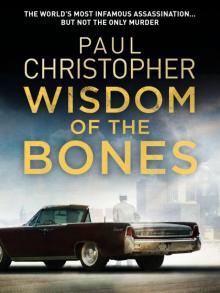 Wisdom of the Bones
Wisdom of the Bones The House of Special Purpose
The House of Special Purpose The Second Assassin
The Second Assassin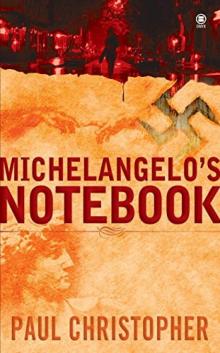 Michelangelo's Notebook
Michelangelo's Notebook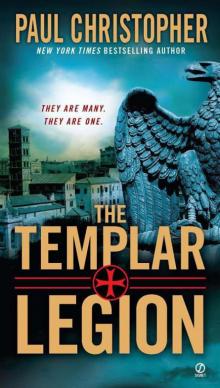 Templar Legion
Templar Legion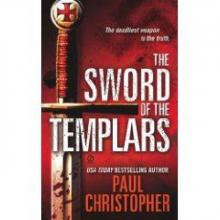 The Sword of the Templars t-1
The Sword of the Templars t-1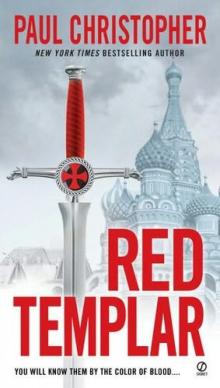 Red Templar
Red Templar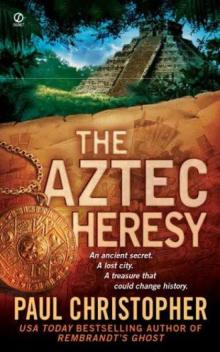 The Aztec Heresy
The Aztec Heresy The Templar Legion
The Templar Legion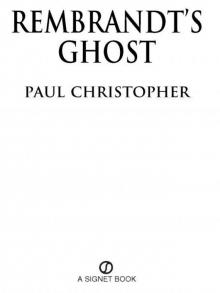 Rembrandt's Ghost
Rembrandt's Ghost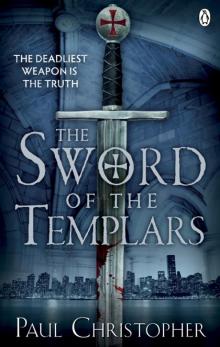 Sword of the Templars
Sword of the Templars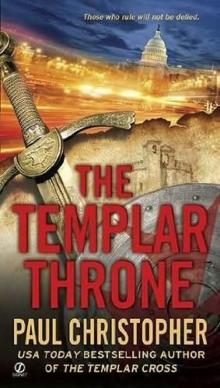 The Templar throne t-3
The Templar throne t-3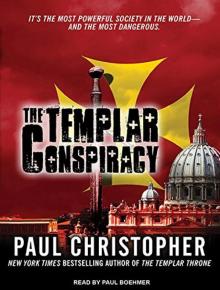 The Templar Conspiracy
The Templar Conspiracy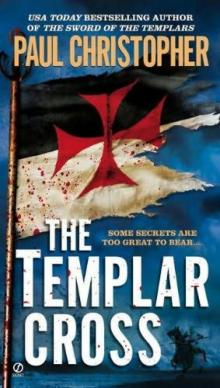 The Templar Cross t-2
The Templar Cross t-2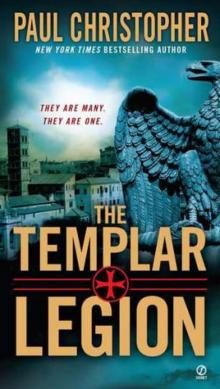 The Templar Legion t-5
The Templar Legion t-5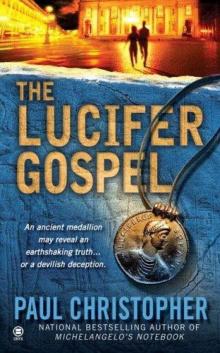 The Lucifer Gospel
The Lucifer Gospel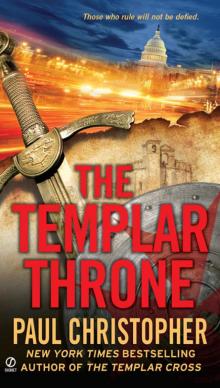 Templar Throne
Templar Throne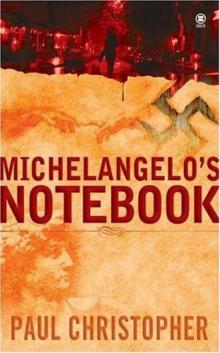 Michelangelo_s Notebook fr-1
Michelangelo_s Notebook fr-1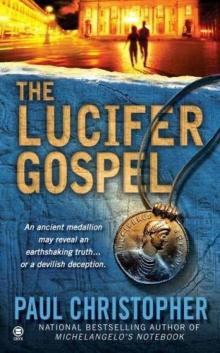 The Lucifer Gospel fr-2
The Lucifer Gospel fr-2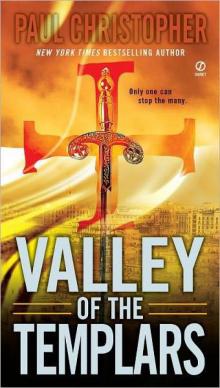 Valley of the Templars ts-7
Valley of the Templars ts-7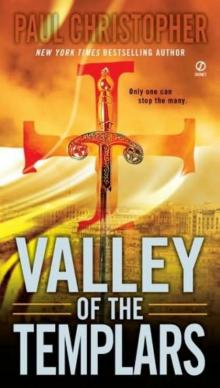 Valley of the Templars
Valley of the Templars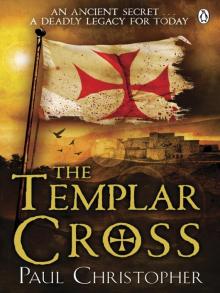 Templar Cross
Templar Cross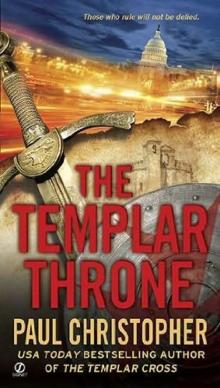 The Templar Throne
The Templar Throne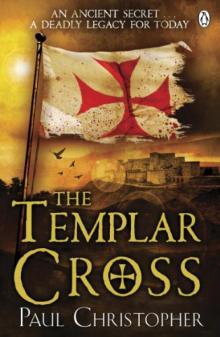 The Templar Cross
The Templar Cross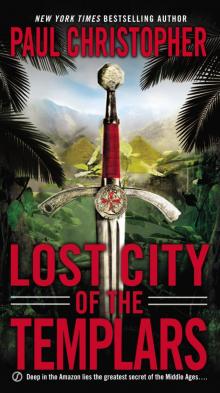 Lost City of the Templars
Lost City of the Templars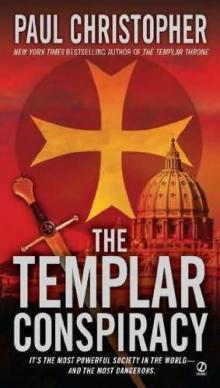 The Templar conspiracy t-4
The Templar conspiracy t-4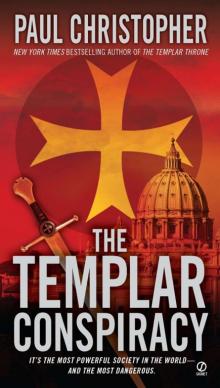 Templar Conspiracy
Templar Conspiracy